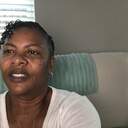About Me (In My Own Words)
2001: My GP in Vancouver, BC discovered a heart murmur for the very first time; I was 42.
2005-2009: Annual Echocardiogram revealed my aortic anulus was ~1.5 sq cm.
2010: While in my office (on a Monday) I started developing chest pain which got progressively worse as they day progressed; after work I drove the Vancouver General Hospital's ER & met my wife there. The staff grounded me and ran tests to look for heart-attack symptoms; the tests were negative but I was advised to see a Cardiologist because of my heart murmur. (My chest pain was attributed to chest muscles - I had been hauling big rocks over the weekend in our yard ...)
2010 - 2015: My wife who worked in the Dept of Medicine at the University if British Columbia got me an appointment with a Cardiologist who monitored my aortic valve once a year via echocardiograms. Over the years the aortic annulus shrank to ~1.3 sq cm.
2016 - 2019: We relocated to Long Island, NY as I took up a new role with my employer. My Cardiologist in LI monitored my valve and echos revealed the annulus had remained at ~1.3 sq cm.
2019: Relocated to Montreal, QC to take on another role with my employer. My Cardiologist from Vancouver had also relocated to Montreal & he introduced me to my current Cardiologist at the Montreal Heart Institute.
2020: Echo indicated my aortic annulus was still at ~1.3 sq cm
2021 Nov: After dinner I experienced palpitations and my wife drove me to ER at a nearby hospital. I was diagnosed with PVCs (Pre-mature Ventricular Contractions). Echo indicated that my aortic annulus had shrunk & I was advised to meet a Cardiologist. My Cardiologist arranged for another echo which indicated that the aortic annulus had shrunk to 0.95 sq cm due to stenosis of the valve.
2022 Jan: My Cardiologist arranged for a stress test which came back with normal results. I did not have any symptoms of breathlessness or light headedness. My Cardiologist discussed with me that studies have shown that having the valve replaced sooner than later yields better results. I agreed to have it replaced.
2022 Feb: I met with Surgeons who do the TAVR / TAVI process for valve replacement; they advised me that a TAVR / TAVI was not feasible in my case. I then met with Dr. Demers. He mentioned to me that according to protocol, the Ross Procedure is done only up to a max age of 60 but although I was almost 63, since my physical condition was good, he recommended that he do the Ross Procedure on me. After discussing with my wife, I agreed.
2022 Feb - May: I increased my weekly exercising (some aerobic - stationary bike or rode my bike outdoors after the snow had melted & some free weights - dumbbells to reduce my weight before surgery and also tone up my muscles. I lost about 7 pounds - mainly fat.
2022 May: Ross Procedure done in the afternoon; total time for surgery was 4.5 hrs. I was extubated a couple of hrs after surgery. Pain level after surgery was 1. The 3 tubes in my abdomen for draining fluids were removed the next morning. Removing the tubes was pretty fast & smooth and I hardly experienced any pain. My overall pain level stayed at 1 & since I did not hit the button for pain meds (morphine I suppose), the ICU nurse hit it once as a precaution. As my BP was very low, the ICU nurses did not want me to try to walk and I was being given medication via IV to raise my BP. After a day in ICU I was moved to a room for recovery where I stayed for 7 days. Days 1 & 2 in the room I was often gasping & uneasy. On Day 2 in the room a Cardiologist asked the nurse to remove the pacemaker that was connected to me. Within 30 secs my gasping stopped & I felt much better. The pacemaker apparently had been conflicting with the natural pace of my heart. I would have been discharged sooner but my BP kept fluctuating between very low and high and the nurses were trying to get it to stay just below 115 (systolic). The nurses and attendants in the hospital were just fantastic despite all the COVID-19 driven staffing shortages!!!
After being discharged my wife drove me home. Throughout my stay in the hospital and for a week after coming home my pain level was 1 or lower and so the only pain meds I took was Tylenol. At home I religiously followed all the physiotherapy exercises that the Physiotherapist had explained to me in the hospital. In less than 6 weeks I was back to normal. Of course I still did not lift heavy weights & went back to weight lifting only after 3 months to give the sternum adequate time to heal.
2022 Oct: 5 months after surgery I feel quite normal and the scar on my chest seems to have reduced quite a bit in some parts. At the bottom though the scar has become a keloidal scar (approx 2 inches). 10 wks after surgery I started applying Vitamin E oil to the scar. Maybe this has helped? I still feel itchiness around the scar ...
Thats all for now & all the best to you if you are getting ready for your surgery or have had your surgery & are on the path to recovery ...
May 26 2023: Just a couple of days short of my 1 year anniversary I feel great. Nov & Dec 2022 I had enrolled in a Cardio Rehab program which was fantastic. Subsequently after I did a stress test, my fitness was confirmed to be better than someone of my age who had not had cardiac surgery. I assume this may be because of better blood circulation and following a fitness regime.
More Info About Me & My Heart
More About Me
-

I am from:
Montréal, Canada
-

My surgery date is:
May 31, 2022
-

I was diagnosed with:
Bicuspid Aortic Valve
-

My surgery was:
Ross Procedure
-

My surgeon is:
Dr. Philippe Demers
 I am from: Montréal, Canada
I am from: Montréal, Canada My surgery date is: May 31, 2022
My surgery date is: May 31, 2022






